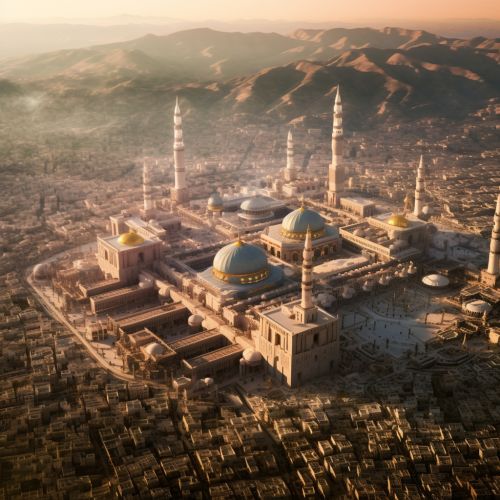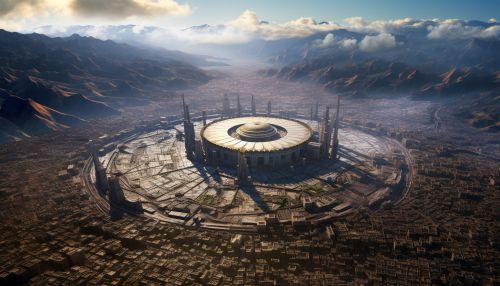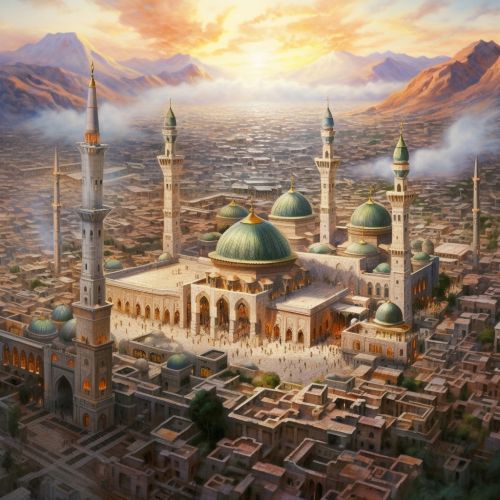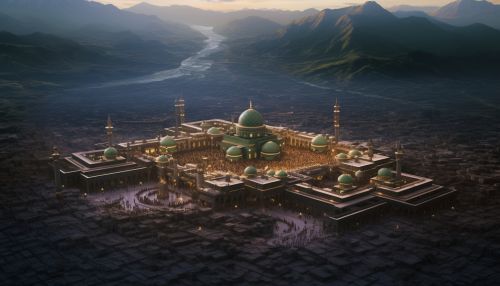Prophet Muhammad
Early Life
Prophet Muhammad was born in 570 CE in the city of Mecca, a central trading hub of the Arabian Peninsula. He belonged to the Quraysh tribe, which was a powerful but not a ruling tribe in Mecca. Muhammad's father, Abdullah, died before he was born, and his mother, Amina, died when he was only six years old. This left Muhammad an orphan at a very young age, and he was raised by his grandfather, Abdul Muttalib, and later by his uncle, Abu Talib.


Prophethood
At the age of 40, Muhammad began to have religious experiences that he would later understand as revelations from God. These experiences were initially very frightening for him, and he turned to his wife, Khadijah, for support. She became the first person to accept his message and convert to Islam. The revelations continued for the rest of his life, and are collected in the Quran, the holy book of Islam.
Migration to Medina
In 622 CE, due to increasing persecution in Mecca, Muhammad and his followers migrated to the city of Medina, an event known as the Hijrah. This migration marks the beginning of the Islamic calendar. In Medina, Muhammad served as a religious leader, a political leader, and a military leader, and the Muslim community grew rapidly.
Battles and Treaties
During his time in Medina, Muhammad and his followers were involved in a series of battles with the Quraysh tribe of Mecca. These battles, including the Battle of Badr, the Battle of Uhud, and the Battle of the Trench, were crucial in the early history of Islam. In 628 CE, Muhammad and his followers attempted to perform the Umrah, a pilgrimage to Mecca, but were prevented by the Quraysh. This led to the Treaty of Hudaybiyyah, a peace treaty between the Muslims and the Quraysh.
Conquest of Mecca
In 630 CE, the Quraysh violated the Treaty of Hudaybiyyah, and Muhammad and his followers conquered Mecca without bloodshed. The Kaaba, the holy shrine of Mecca, was cleansed of idols, and the city was declared a center of Muslim pilgrimage.
Death and Legacy
Muhammad died in 632 CE in Medina. He is considered the last prophet of Islam, and his teachings continue to be followed by Muslims around the world. His life and teachings have been preserved in the Hadith, the collected sayings and actions of Muhammad, and the Sira, the biographies of Muhammad.


